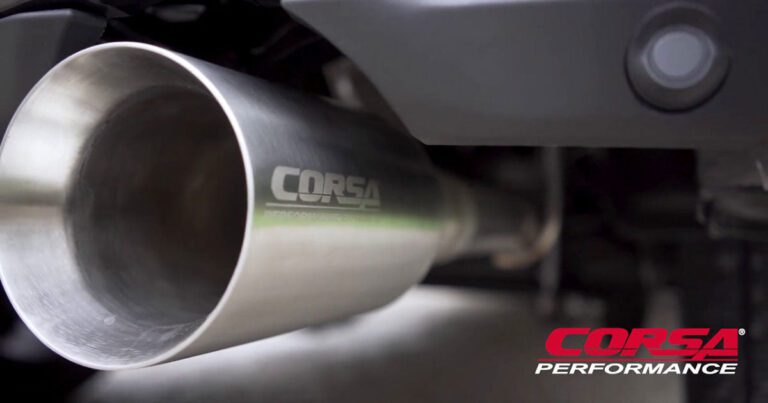Car Noises When Accelerating: Unveiling the Hidden Troubles
Car noises when accelerating can indicate issues with the engine, transmission, exhaust system, or drive belts. These noises should be promptly addressed to prevent further damage to the vehicle.
Engine Knocking
Engine knocking is a common car noise that you may encounter when accelerating. It refers to a metallic sound originating from the engine compartment. Several factors can contribute to engine knocking, including improper fuel combustion, worn-out spark plugs, low-quality fuel, or carbon build-up in the cylinders. Identifying engine knocking while accelerating can be done by paying attention to the sound of the engine. It typically sounds like a knocking or ticking noise that increases with acceleration.
Ignoring engine knocking can lead to potential damage and expensive consequences. Persistent knocking can damage the engine bearings, pistons, or connecting rods, leading to costly repairs or even engine failure. Therefore, it’s essential to address engine knocking promptly by diagnosing and fixing the underlying causes. In some cases, simply using a higher octane fuel or replacing faulty spark plugs may alleviate the problem. However, if the knocking persists, it’s recommended to seek professional help to prevent further damage to your car’s engine.
Exhaust System Noise
When experiencing car noises during acceleration, it is important to pay attention to the exhaust system. The exhaust system plays a crucial role in directing exhaust gases away from the engine and reducing noise levels. Understanding the components of the exhaust system can help identify potential issues. These components include the exhaust manifold, catalytic converter, muffler, and tailpipe. Common causes of exhaust system noise during acceleration can include a loose or damaged part, a cracked or leaking exhaust manifold, a damaged catalytic converter, or a worn-out muffler. Diagnosing the issue usually involves visually inspecting the exhaust system for any visible damage or leaks. Fixing exhaust system noise issues may require replacing or tightening loose parts, repairing damage, or replacing components that are worn-out or faulty. It is important to address these issues promptly to avoid potential damage and maintain a quiet and efficient exhaust system.
Belt And Pulley Squealing
The belt and pulley system in cars is responsible for various functions, such as powering the alternator, water pump, and air conditioning compressor. When it comes to belt and pulley squealing while accelerating, there are several factors that can contribute to this issue. First, worn-out or loose belts can cause squealing noises as they slip over the pulleys. Additionally, inadequate belt tension can lead to the same problem. Moreover, dirty or contaminated pulleys can result in belt slippage and squealing sounds.
To resolve belt and pulley squealing problems, it is essential to regularly inspect your car’s belts and pulleys for any signs of wear, damage, or misalignment. If you notice any issues, it is best to replace the worn-out belts or adjust the tension accordingly. Cleaning the pulleys and removing any contaminants can also help eliminate squealing noises. In addition, using a belt dressing or conditioner can improve the traction between the belt and pulleys. By keeping your belts and pulleys in good condition, you can ensure smooth and quiet acceleration in your car.
Other Potential Car Noises When Accelerating
Car noises when accelerating can be concerning, but there are other less common noises that you might hear while on the road. These noises may indicate a variety of potential issues with your vehicle, and it’s important to address them as soon as possible to avoid further damage.
One possible noise you might notice is a grinding or scraping sound. This could indicate a problem with your brakes or your wheel bearings. It’s crucial to have these components inspected and repaired if necessary to ensure your safety on the road.
Another noise you might hear is a high-pitched squealing or screeching sound. This could be a sign that your serpentine belt or drive belt needs to be replaced. Ignoring it could lead to belt failure, leaving you stranded and potentially causing damage to other engine components.
| Noise | Possible Cause | Solution |
|---|---|---|
| Clicking or tapping | Valve train problems | Have valve clearance checked and potentially adjusted |
| Rattling or knocking | Engine problems, such as worn bearings or piston slap | Consult a mechanic to diagnose the issue and perform necessary repairs |
| Hissing or whistling | Vacuum leak | Identify and fix the source of the leak, which could be a damaged hose or gasket |
These are just a few examples of the various car noises you might encounter. The key is to pay attention to any unfamiliar sounds and address them promptly. Taking your vehicle to a trusted mechanic for a thorough inspection can help you diagnose the problem and ensure the necessary repairs are made.

Credit: www.wired.com
Frequently Asked Questions Of Car Noises When Accelerating
When I Press The Gas I Hear A Humming Noise?
A humming noise when you press the gas could indicate a problem with the exhaust system, such as a worn-out muffler or a loose pipe. It is advisable to have a professional mechanic inspect and diagnose the issue to ensure a safe and reliable driving experience.
Why Does My Car Sound Like An Airplane When I Accelerate?
Your car may sound like an airplane when accelerating due to a faulty exhaust system or a worn-out muffler. This can cause excessive noise and vibration, resembling an airplane. It’s important to have a mechanic inspect and repair the issue to ensure your car’s optimal performance and safety.
Why Does My Car Sound Like A Lawn Mower When Accelerating?
Your car may sound like a lawn mower when accelerating due to an issue with the exhaust system. This could be caused by a loose or damaged muffler, exhaust pipe, or catalytic converter. Have a mechanic inspect your car to identify and fix the problem.
Q: Why Does My Car Make Noise When Accelerating?
A: Car noises when accelerating can be caused by a variety of factors, including issues with the exhaust system, transmission, or engine. It’s best to have a professional diagnose and fix the problem to prevent further damage and ensure your safety on the road.
Conclusion
It is crucial to identify and address car noises when accelerating promptly. These noises could indicate underlying issues with the engine, transmission, exhaust system, or other components. By consulting a professional mechanic and conducting regular maintenance, you can ensure the safety and longevity of your vehicle.
Take action to prevent further damage and costly repairs. Keep your car running smoothly for years to come.






